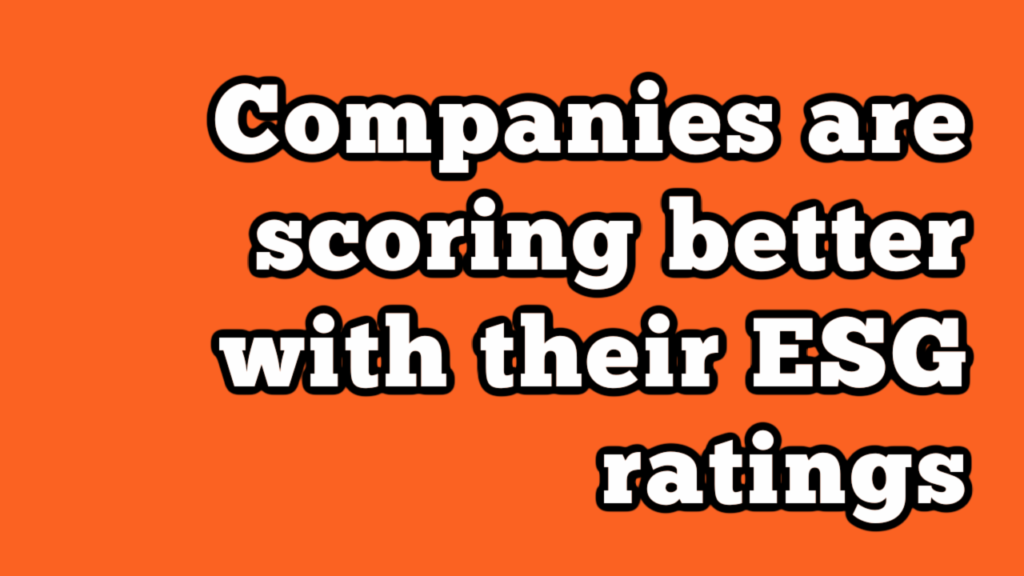Companies are scoring better with their ESG ratings

– Investor pressure for better sustainability performance is yielding results.
– We still have a long way to go, but it’s nice to see better corporate ESG performance.
Here is the intro from this Reuters article:
U.S. companies’ sustainability ratings rose in 2020, based on data from Refinitiv, as investors put more pressure on corporate boards to improve their environmental, social and governance (ESG) credentials and as authorities propose tougher disclosure rules.
Investors are demanding more information from companies on everything from carbon emissions to boardroom diversity amid a growing belief that companies which perform well on ESG issues will have a stronger performance financially over time.
To help rank companies’ efforts, a number of data providers, including Refinitiv, assess corporate disclosures and other data sources. Investors can use them as a starting point for their own analysis before deciding whether to invest.
Latest rankings from Refinitiv based on company annual reports for 2020, shows the average ESG score of 137 U.S. companies, with a market cap of at least $5 billion, is 44.2, compared with 42.8 in 2019.
But there is a skeptical reaction from Francesco Navarrini made on this note:
I am wary of news re: ESG scores that increase or decrease. We don’t need more black boxes, rather raw data to scale up sustainability: How many times boards recommended support for shareholder proposals asking for an annual vote on the climate report? How many of them have an external whistleblowing hotline that is not managed by the company or the audit firm and feeds in directly to an independent committee? Which companies have a procedure for including feedback from stakeholder engagement? Questions such as these may or may not make up the scores, but the point is that with scores like this we are still in the cave looking at shadows.
And this comment from Rob Karpati:
An increase in scores is better than a decrease, but looking at the chart it seems pretty straight-line. I would think that some companies have learned how to wash their reporting better, which is why there is a slight uptick. Having said that, I agree Nawar that investor influence is both real and significant, which is why there is progress toward transparent outcome-oriented reporting that will be the future standard. Once we get there, it will be much harder to ‘manage’ the story given that standard quantitative reporting requirements that are audited against don’t lie, which will allow investors to make targeted choices that increase sustainability in theory, while lowering risks for investors.
